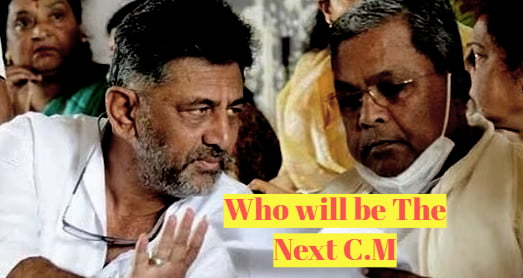I wonder whether we can declare that Narendra Modi lost in Karnataka now that the election results are in and the Congress has triumphed. The narrative that Congress triumphed despite Rahul Gandhi will undoubtedly be spun by its detractors, who will argue that the state’s local leaders deserve credit for the victory. These spinners are the same ones who love to claim that Modi’s magic worked when the BJP won but point the finger at regional leaders when the party loses.
In my most recent column, I claimed that Modi will decide the outcome of the Karnataka election because he had adopted the role of a protector angel. Now, I can declare without reservation that Modi must accept responsibility for the state’s defeat, and there are good grounds for it.
Seven elements, as the results indicate, worked against the BJP in these elections.
The BJP paid the price for marginalizing BS Yediyurappa. The party was created from scratch by Yediyurappa. After 1989, the influential Lingayat community moved away from Congress and towards the BJP as a result of him. In this election, the BJP’s defeat in central Karnataka, a stronghold of Lingayat supporters, shows that his caste did not take Yediyurappa’s apparent marginalization lightly. The resignation of former chief minister Jagdish Shettar also incensed the Lingayat people. Shettar was Yediyurappa’s protege, but despite his best efforts, the BJP was unmoved by his arguments. Laxman Savadi, a former deputy chief minister and another Lingayat leader, was also denied a ticket. Simple was the message. BJP’s big risk of Second, the party suffered greatly as a result of the Chief Minister’s selection of Basavaraj Bommai. Bommai will be remembered as the least inspiring Chief Minister in the annals of Karnataka. Karnataka, the nation’s economic engine, needs a dynamic leader to push the state along a more rapid development path. Bommai, however, exhibited poor leadership. The BJP nominated Bommai to appease the Lingayats after ousting Yediyurappa, but it was unsuccessful.
The BJP should have identified a charismatic leader to motivate both the party and the state government if it was truly striving to remake itself.
For the past three years, the BJP has brought up anti-communal issues in Karnataka. Except for coastal Karnataka, the state is not known for religious division. The BJP and its allies, like Bajrang Dal, aggressively pushed issues like the hijab, halal meat, love jihad, land jihad, and economic boycott of Muslims. The communal cauldron was purposefully left on fire; perhaps the goal was to draw attention away from the rising cost of living, corruption, and unemployment. After Congress stated in its manifesto that it would outlaw the Bajrang Dal if elected, PM Modi actively invoked Bajrang Bali in the last days of the campaign. Modi went so far as to claim that Congress had put Ram in prison and that it would now release him.
Despite the “cohesive unit” concept, sectional politics have destroyed the BJP’s chances in Karnataka. A number of groups were competing with one another. This fact was highlighted quite clearly by Jagadish Shettar’s departure. The Brahmin lobby and BL Santosh were directly blamed by him. In contrast, Congress finally battled like a well-oiled machine after a long time. The BJP was compelled to respond as Congress set the tone for the campaign.
Congress has a strong leader in DK Shivakumar who is ready to counteract every BJP initiative on an equal footing. More so than his adversary Bommai, Siddaramaiah proved to be one of Congress’ most captivating crowd-pullers alongside Shivakumar. A recent survey by NDTV-CSDS found that only 22% of respondents were willing to support Bommai as chief minister, while 40% preferred Siddaramaiah. These numbers are a disgrace for an active Chief Minister.
The results demonstrate that the party benefited from Congress’ call to outlaw Bajrang Dal. Muslim votes were more consolidated as a result, particularly in the historic district of Mysuru, where Janata Dal Secular’s seats and vote share both saw significant declines.
In social engineering, Congress triumphed over its competitors. Its emphasis on the votes of Scheduled Castes, Backward Classes, and Minorities—known collectively as Ahinda in Kannada—proved to be crucial. OBC candidates for chief minister Siddaramaiah, Dalit Congress president Mallikarjun Kharge, and Vokkaligga candidate Shivakumar are all ethnic minorities. The combination of OBC, Dalit, and Muslims, combined with Vokkaligga, tipped the social math in Congress’ favor.
Due to the discontent of the Lingayat voters, the BJP suffered from weaknesses in its social basis. It is possible that Shivakumar, a Vokkaligga, is the presumed Chief Minister due to the Congress’ artful vagueness.
Karnataka suggests that the BJP’s excessive centralization may not be effective outside of the Vindhya area and that it may be detrimental if it marginalizes and denigrates regional and subregional identities while promoting the meta-Hindutva identity at their expense. There is unequivocal evidence that Hindutva has failed. Congress, on the other hand, saw great success as a result of its decentralized approach and respect for local identities and leaders.
In the end, it is safe to say that, even for the most charismatic leader, taking voters for granted does not work. A failing administration cannot conceal itself in the name of religion. Religious catchphrases are ineffective at tricking people. The BJP needs to reflect and determine if its excessive reliance on Modi in elections is its true weakness after Karnataka’s lessons.

